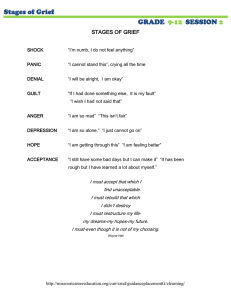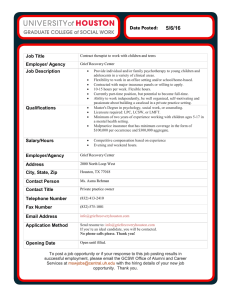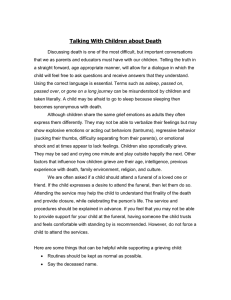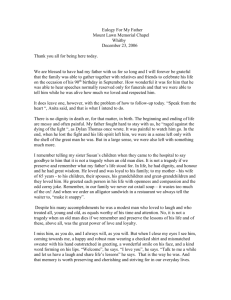NIU EMPLOYEE ASSISTANCE PROGRAM 815-753-9191 Stepping Stones Along Your Grief Journey…
advertisement
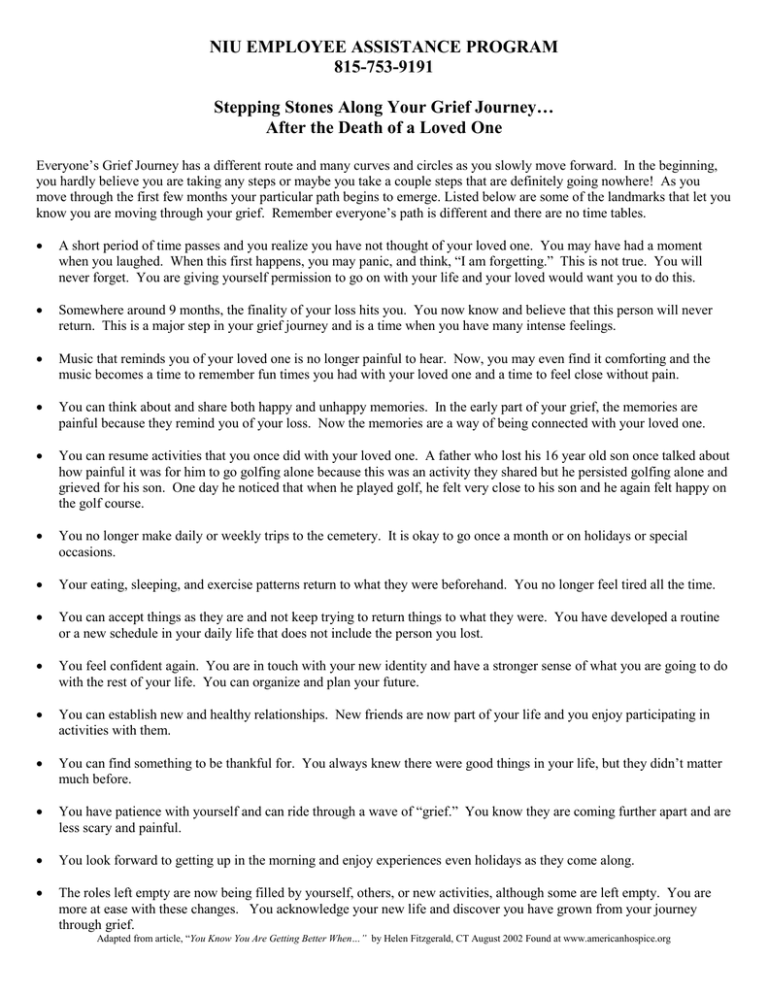
NIU EMPLOYEE ASSISTANCE PROGRAM 815-753-9191 Stepping Stones Along Your Grief Journey… After the Death of a Loved One Everyone’s Grief Journey has a different route and many curves and circles as you slowly move forward. In the beginning, you hardly believe you are taking any steps or maybe you take a couple steps that are definitely going nowhere! As you move through the first few months your particular path begins to emerge. Listed below are some of the landmarks that let you know you are moving through your grief. Remember everyone’s path is different and there are no time tables. A short period of time passes and you realize you have not thought of your loved one. You may have had a moment when you laughed. When this first happens, you may panic, and think, “I am forgetting.” This is not true. You will never forget. You are giving yourself permission to go on with your life and your loved would want you to do this. Somewhere around 9 months, the finality of your loss hits you. You now know and believe that this person will never return. This is a major step in your grief journey and is a time when you have many intense feelings. Music that reminds you of your loved one is no longer painful to hear. Now, you may even find it comforting and the music becomes a time to remember fun times you had with your loved one and a time to feel close without pain. You can think about and share both happy and unhappy memories. In the early part of your grief, the memories are painful because they remind you of your loss. Now the memories are a way of being connected with your loved one. You can resume activities that you once did with your loved one. A father who lost his 16 year old son once talked about how painful it was for him to go golfing alone because this was an activity they shared but he persisted golfing alone and grieved for his son. One day he noticed that when he played golf, he felt very close to his son and he again felt happy on the golf course. You no longer make daily or weekly trips to the cemetery. It is okay to go once a month or on holidays or special occasions. Your eating, sleeping, and exercise patterns return to what they were beforehand. You no longer feel tired all the time. You can accept things as they are and not keep trying to return things to what they were. You have developed a routine or a new schedule in your daily life that does not include the person you lost. You feel confident again. You are in touch with your new identity and have a stronger sense of what you are going to do with the rest of your life. You can organize and plan your future. You can establish new and healthy relationships. New friends are now part of your life and you enjoy participating in activities with them. You can find something to be thankful for. You always knew there were good things in your life, but they didn’t matter much before. You have patience with yourself and can ride through a wave of “grief.” You know they are coming further apart and are less scary and painful. You look forward to getting up in the morning and enjoy experiences even holidays as they come along. The roles left empty are now being filled by yourself, others, or new activities, although some are left empty. You are more at ease with these changes. You acknowledge your new life and discover you have grown from your journey through grief. Adapted from article, “You Know You Are Getting Better When…” by Helen Fitzgerald, CT August 2002 Found at www.americanhospice.org
